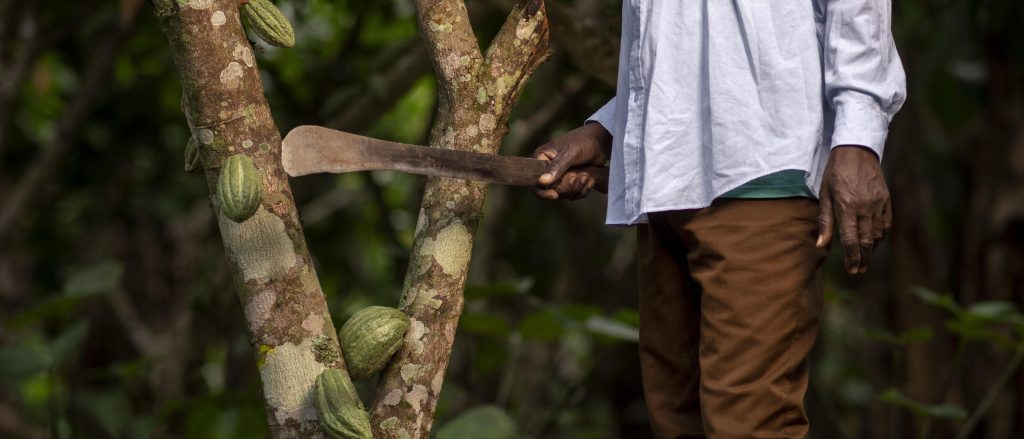On a misty morning in Sulawesi, the scent of wet earth mixes with the sweet aroma of ripening cocoa pods. The farmers walk their small plots, checking trees that have been in their families for decades. These farms already follow many low-input, nature-friendly practices. Shade-grown cocoa, compost made from local materials, and minimal synthetic inputs. Yet a question keeps arriving from overseas buyers: “Are your cocoa beans certified organic?”
The short answer: our cocoa beans are grown with traditional, low-input practices but are not officially certified organic. Here’s why and why we believe transparency, traceability, and quality matter more than any single label.
Organic Certification Isn’t Free and Isn’t Always Fair. For smallholder farmers across Indonesia, the cost of organic certification is steep. It includes inspection fees, paperwork, and compliance audits that can easily exceed hundreds of dollars per year per farm. A huge burden for growers earning modest incomes. In India, for example, certification under the National Programme for Organic Production (NPOP) can cost between ₹15,000–₹50,000 per plot, excluding testing and paperwork (Economic Times, 2024). There’s also a mandatory three-year transition period during which farmers must farm under organic rules but cannot sell at organic prices. Combined with lower yields, the economics often don’t work for smallholders.
The Myth of the “Organic” Label
Globally, “organic” doesn’t always mean what consumers think. Standards vary widely from country to country, and enforcement can be inconsistent. In Australia, a 2025 investigation found products labeled “organic” or “almost organic” that were not fully certified, misleading shoppers and undermining genuine producers (The Guardian, 2025). This uneven landscape makes the label alone an unreliable measure of sustainability or quality. True environmental impact depends on farm practices, supply chain transparency, and post-harvest handling areas where idnnatura.com invests heavily.
What We Do Instead at IDN Natura
Rather than diverting scarce resources into paperwork and fees, we focus on:
- Traceability: Every bag of cocoa beans from idnnatura.com can be traced back to its farmer group and location in Indonesia.
- Quality at Source: We invest in fermentation and sun-drying protocols to achieve consistent moisture content (around 7%) and flavor profiles prized by artisan chocolate makers.
- Farmer Training: We provide hands-on support for sustainable soil practices and pest management, ensuring responsible farming without rigid certification hurdles.
- Flexibility: Farmers retain the ability to respond quickly to pest or climate challenges, protecting both quality and supply stability.
We’re not against organic certification. But, the data shows why our focus on transparency and quality is a strong choice:
- Lower Yields: A global meta analysis found that organic farming yields are on average 10–18% lower than conventional methods. However, when organic products secure premium pricing, profits can be 22–35% higher than conventional (PNAS).
- India Case Study: Research from India shows organic farmers experience 8–9% lower yields in crops like rice and soybeans compared to conventional farmers. Yet profits can rise slightly if products are packaged, clearly labeled, or sold to buyers who value organic (MDPI).
- Market Growth but Infrastructure Gaps: The global organic cocoa market is projected to grow at a 6.7% CAGR from 2025–2033, but production infrastructure, supply chain efficiency, and traceability remain key barriers for producing regions (Business Research Insights).
These numbers illustrate that while the organic market is growing, certification alone isn’t a silver bullet. Without robust traceability and farmer support, the benefits of the label can be uneven. Especially for smallholders in producing countries.
Why Transparency Beats Labels for Today’s Cocoa Buyers. For buyers who demand proof of origin, consistent quality, and environmental responsibility, full transparency and verifiable data can matter more than a logo. By sharing detailed post-harvest specs, moisture levels, fermentation times, and farmer profiles, idnnatura.com provides exactly what buyers need to make informed sourcing decisions.
We may explore group certification in the future, but for now our energy goes directly into improving quality, farmer livelihoods, and traceability. We believe that’s how trust is built, and how sustainable cocoa from Indonesia can thrive on the global stage. We invite you to experience our cocoa beans not just as a product but as a story: a supply chain rooted in honesty, tradition, and innovation.
References
Economic Times. Why small farmers are upset with food safety regulators (2024).
Ponisio et al. “Diversification practices reduce organic to conventional yield gap.” PNAS (2015).
MDPI. Sustainability Journal — Organic vs. Conventional Farming in India (2022).
The Guardian. Falsely labelled organic products rife on Australian shelves (2025).
Business Research Insights. Organic Cocoa Market Report 2025–2033.

